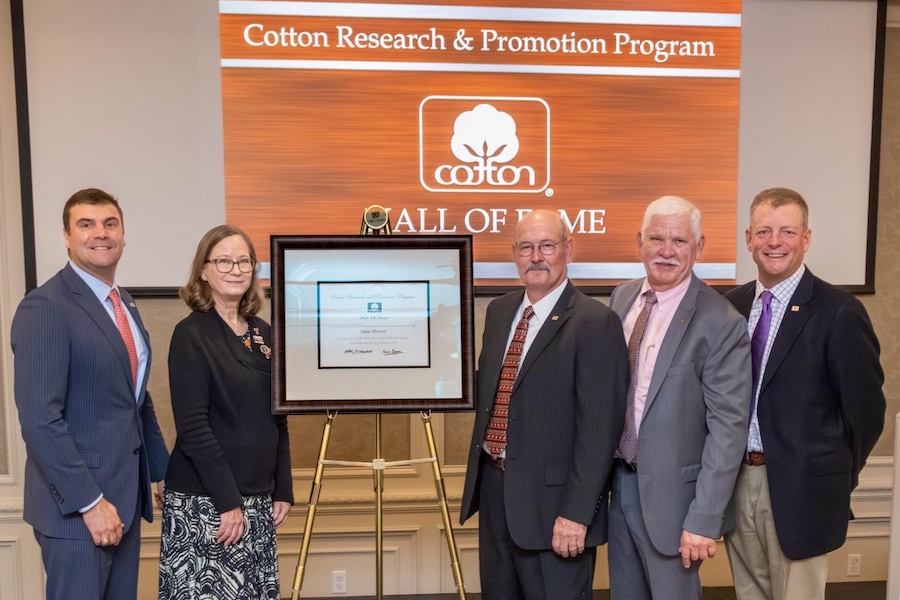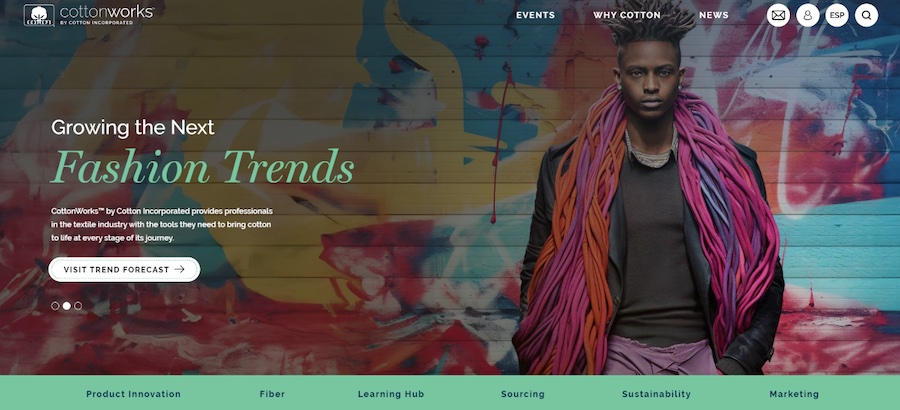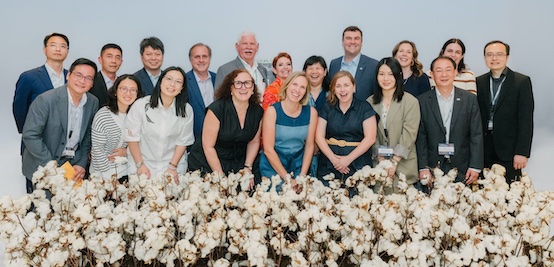#Raw Materials
Cotton Sustainability Summit: A catalyst for industry collaboration

Keynote speakers Paul Hawken and Dr. Marcius Extavour set the tone by underscoring the urgent need for action across sectors to combat the impacts of climate change. Their talks emphasized the pivotal role of the cotton industry in driving sustainability while adapting to an increasingly demanding regulatory landscape.
Critical Industry Challenges and Solutions
Regenerative agriculture was an important topic at the Cotton Sustainability Summit, with discussions highlighting how these methods go beyond soil health to enhance water conservation, carbon capture, and biodiversity. U.S. cotton growers and industry scientists and leaders shared insights on why they are adopting regenerative practices to improve soil ecosystems and mitigate climate risks, framing regenerative agriculture as essential to the industry’s sustainability goals. As regulations and standards evolve, these practices are proving crucial, helping farmers balance environmental benefits with new legislative demands and setting a high bar for U.S. cotton.
Key Insights on Regenerative Agriculture
Many U.S. farmers are already using regenerative practices that contribute to healthy soils.
Regenerative agriculture practices can support carbon sequestration and lower overall carbon footprints, offering a practical solution to climate challenges.
Regenerative practices can not only be positive for the environment but for profitability too. These practices that improve soil health can increase yield and lower growers’ reliance on costly inputs.
Circularity in cotton was another key theme, focusing on the industry’s commitment to creating a closed-loop system where materials are reused, recycled or returned to the earth in responsible ways. Sessions covered innovations in upcycling, practical applications of circular systems within the cotton supply chain, as well as turning cotton garments into compost at the end of life to reduce waste. Research is ongoing to explore the full potential of composting and the challenges to waste handling and sorting materials. These initiatives reflect a shift toward a sustainable future in which the lifecycle of cotton products is continually renewed.
Key Insights on Circularity
Cotton has many options for circularity and end of product life.
Composting, the process of naturally transforming cotton textile waste into organic soil material, has been technically proven. Further research is underway to test the economic feasibility of the process, which holds promise for helping brands and retailers with production waste.
Recycling and repurposing of cotton textile waste is moving forward with efforts to improve sorting and handling of textile waste into recoverable waste streams.
“The Cotton Sustainability Summit represents a pivotal moment for our industry, where collaboration and innovation are more critical than ever. As we face the challenges of a changing climate and resource scarcity, the commitment to continual improvement, regenerative agriculture, and circularity is our path forward,” said Dr. Jesse Daystar, Chief Sustainability Officer at Cotton Incorporated. “It’s inspiring to see leaders across the supply chain pushing boundaries, setting rigorous standards, and driving meaningful change. Together, we’re redefining what’s possible for a sustainable cotton industry that benefits farmers, the planet, our communities, and future generations.”
Looking Ahead: A Shared Vision for Sustainability
The 2024 Cotton Sustainability Summit underscored that real change requires collaboration across the entire cotton value chain. Through shared insights and bold ideas, the industry’s commitment to sustainability is clear. By adopting regenerative practices, rigorous sustainability standards, and circular innovations, the cotton industry and its stakeholders can reshape our future. For more information on cotton sustainability, visit cottonworks.com or cottontoday.cottoninc.com.
















